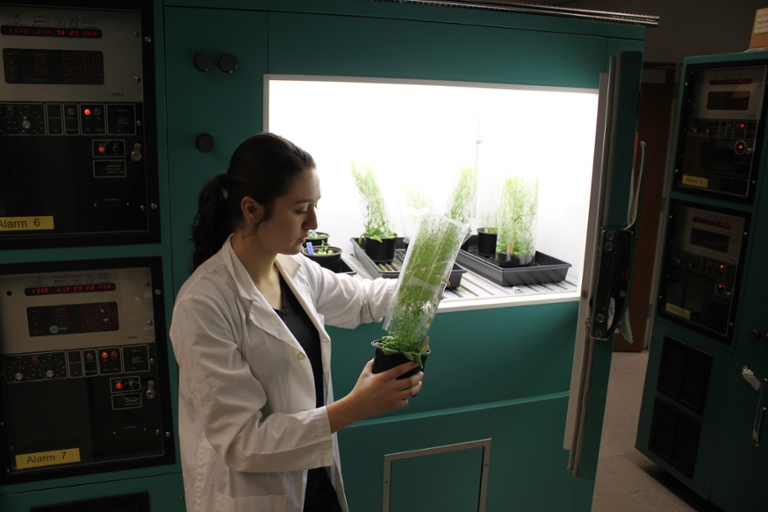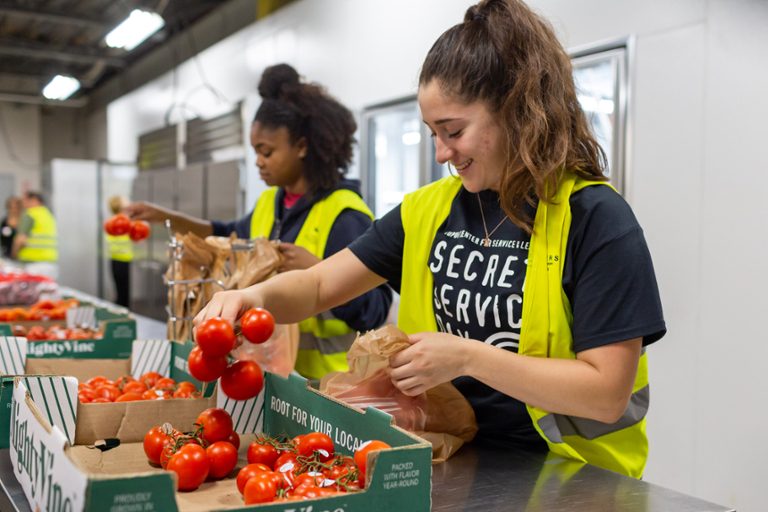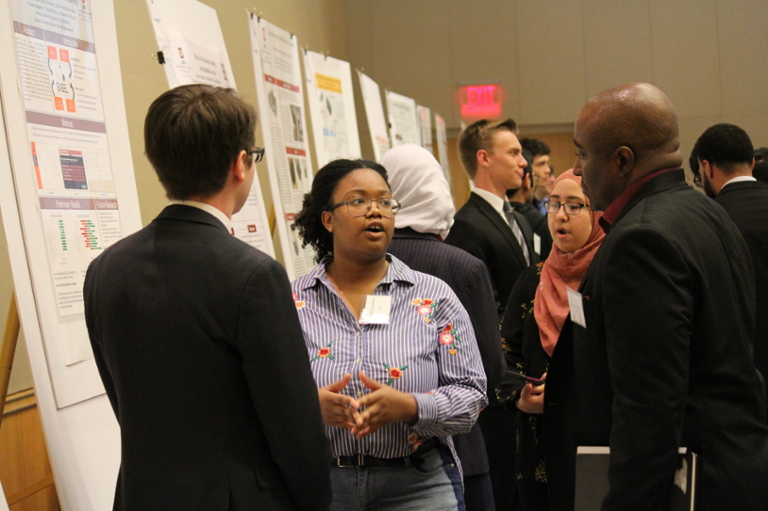What comes to mind when you hear the words higher education? Lectures? Textbook reading? While these are excellent ways to learn, today’s students desire more from their education. Students want to learn not only by listening and observing but also by doing. As part of its strategic plan to promote undergraduate learning and success, IUPUI’s Institute for Engaged Learning creates immersive educational opportunities rooted in hands-on experience.

What is engaged learning?
With new developments in technology and increased emphasis on experiential learning, education now takes place both inside and outside the classroom. Students have opportunities to transform their education into real-world experiences through engaged learning.
When students are engaged in their learning, their minds tend to be active instead of passive. According to the Association for Psychological Science, rather than soaking up knowledge like a sponge, students construct knowledge in a fashion more akin to building blocks. Students learn and retain information the best when their minds are actively engaged.
Transforming education into an engaged learning experience allows students to examine their learning more deeply through assessment, reflection, and application.
Assessment: The student assesses the information they have gained, both from classroom and engaged learning experiences. This allows the student to take stock of the knowledge and skills that they have gained.
Reflection: The student reflects on their new skills and knowledge. This involves thinking critically, asking questions, and considering the meaning behind their experiences.
Application: The student applies their knowledge and skills. This allows them to see the utility of their education beyond the classroom.
When given the chance to apply these components of engaged learning, students are empowered to take control of their own success and pursue additional growth opportunities.
Where does engaged learning begin?

The push for students to be involved outside the classroom often begins with students getting out from behind their desks. Traditional collegiate learning involves a lecturer in front of a classroom. However, lectures and traditional learning styles can have a longer-lasting impact on students when they have opportunities to apply what they have learned.
For this reason, faculty and staff are encouraged to facilitate engaged learning, both on campus and in the surrounding Indianapolis community. Students are as equally responsible for their education as the faculty and staff who educate them; however, a little guidance can go a long way in opening doors to success.
Students in classes with traditional lecturing are 1.5 times more likely to fail than are those in classes with active learning.
Source: Scott Freeman, et al. “Active Learning Increases Student Performance in Science, Engineering, and Mathematics.” Proceedings of the National Academy of Sciences of the United States of America, vol. 111, no. 23, 2014, p. 8410. EBSCOhost, doi:10.1073/pnas.1319030111.
What is an example of engaged learning?

Undergraduate research is at the forefront of IUPUI’s reputation, with new programs, internships, and scholarships being created daily. Derrick Brownie, program coordinator for the Institute of Engaged Learning’s Center for Research and Learning, advocates for the importance of research as a fundamental engaged learning opportunity. According to Brownie, the center’s purpose in connecting students to research is the development of skills and tools needed to succeed not only in college but also in a career as well.
Knowing how essential these tools are, Brownie hopes to promote research to as many students as possible. Undergraduate research is open to all disciplines, and all students are welcome to bring forward the ideas that excite and motivate them.
In the last year, the Center for Research and Learning expanded its programs to also focus on arts and humanities research, and it positively changed the dynamic of the center’s research opportunities, presentations, and events. "Students were like, have you been down to see the arts displays that they have?” Brownie said.
It's more than just reading something or taking a test. Students are actually getting hands-on experience in their research on a project.
Derrick Brownie, Program Coordinator and Social Media Specialist, Center for Research and Learning
To make research a true engaged learning experience, Brownie emphasizes self-reflection as a key component of each research program that the center maintains. Students are encouraged not to simply write about their research in their reflections, but to write about their personal growth.
“We want to hear about how you grew as a student, as a person. That's where we also go back to check to make sure we're doing our part and make sure that we're pairing [students] up with mentors who will help them grow and develop skills that they didn't have before.”
About the Institute for Engaged Learning
The Institute for Engaged Learning promotes undergraduate learning through equitable access to pathways of connected curricular and co-curricular, experiential, applied, and integrative learning opportunities that prepare students for lives of meaning and success with skills to communicate, innovate, engage with communities, and solve the problems of the twenty-first century.
Stay tuned for next month's article in this three-part series to discover more about the engaged learning opportunities at IUPUI.
For more information, contact the Division of Undergraduate Education Office of Communications at duecomm@iu.edu.

